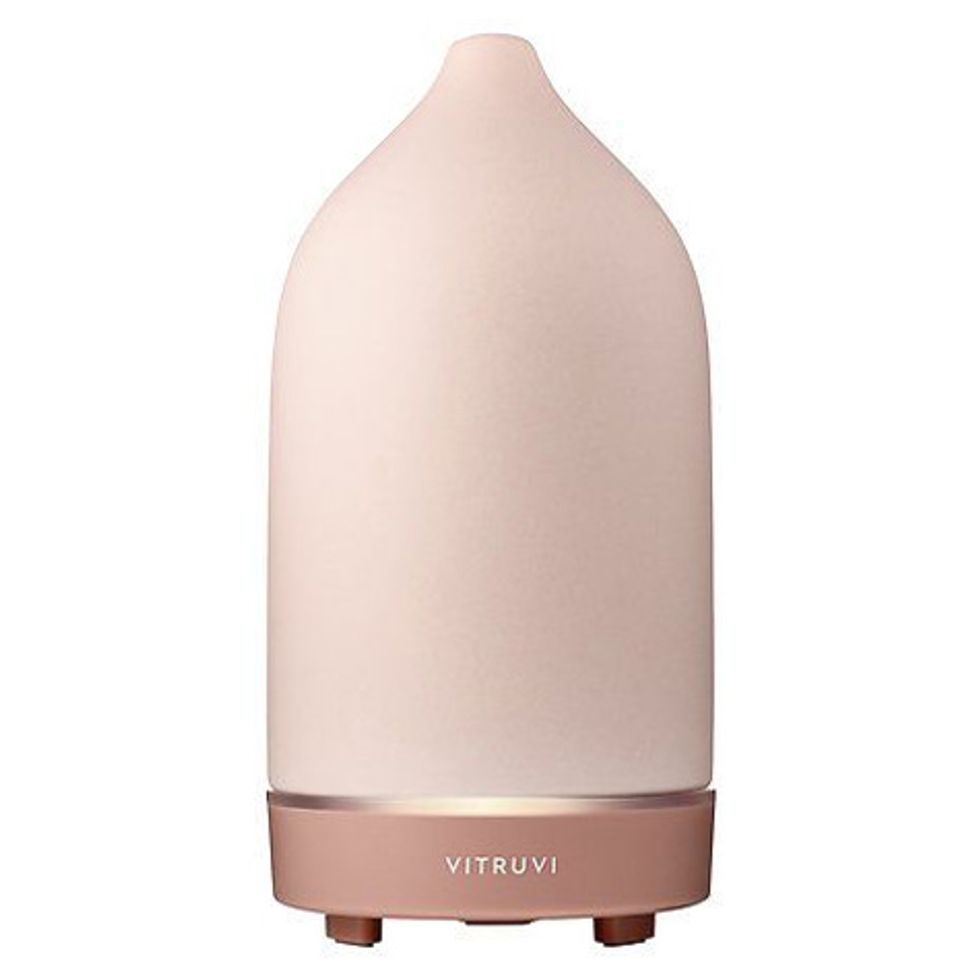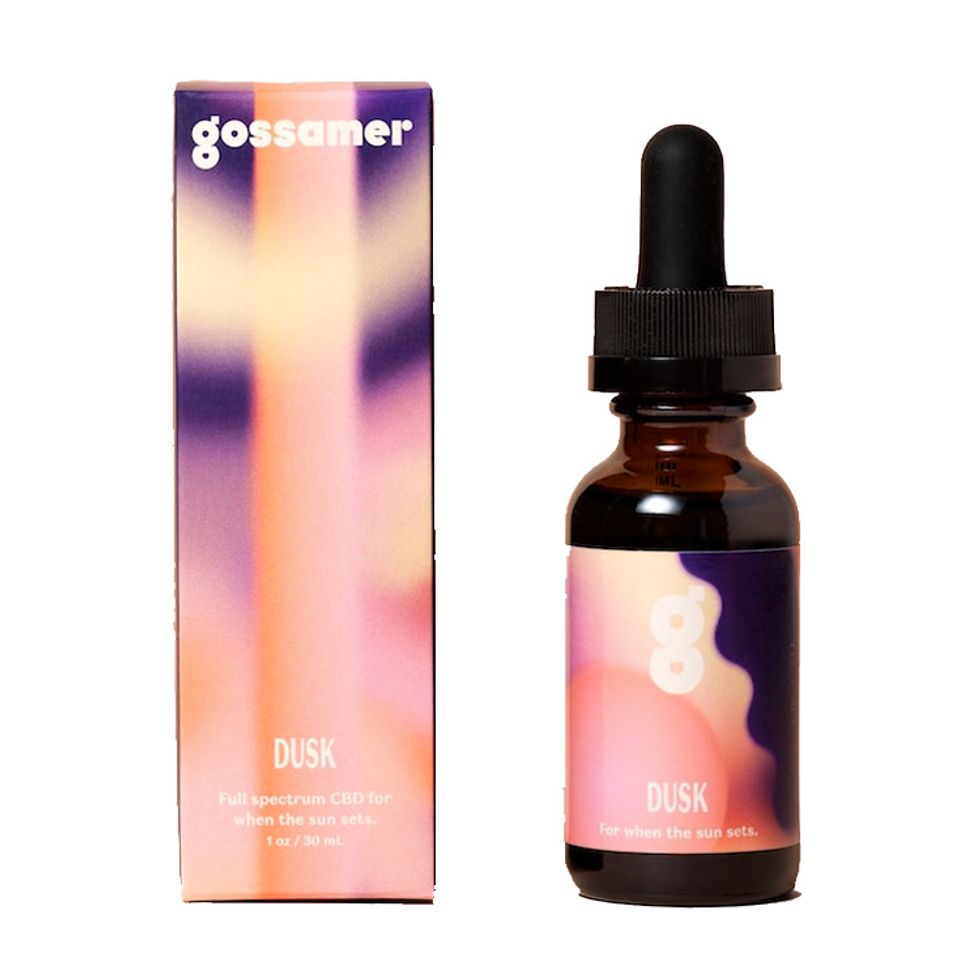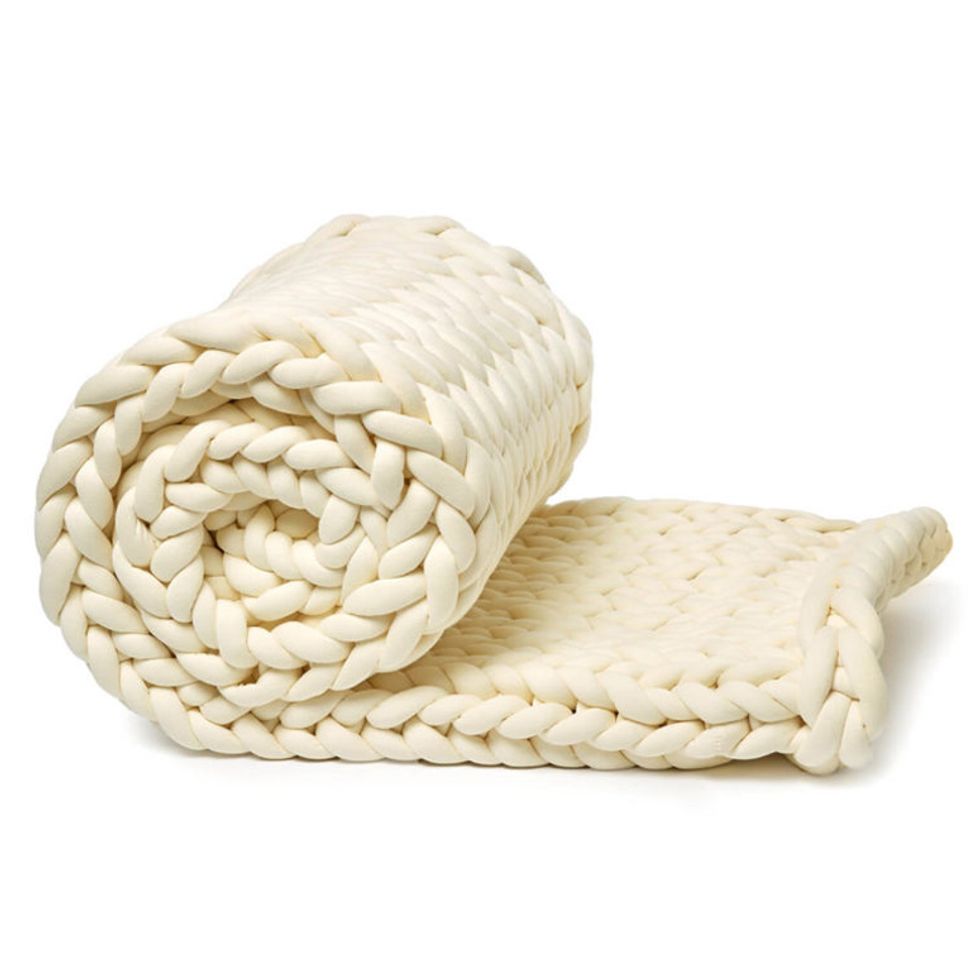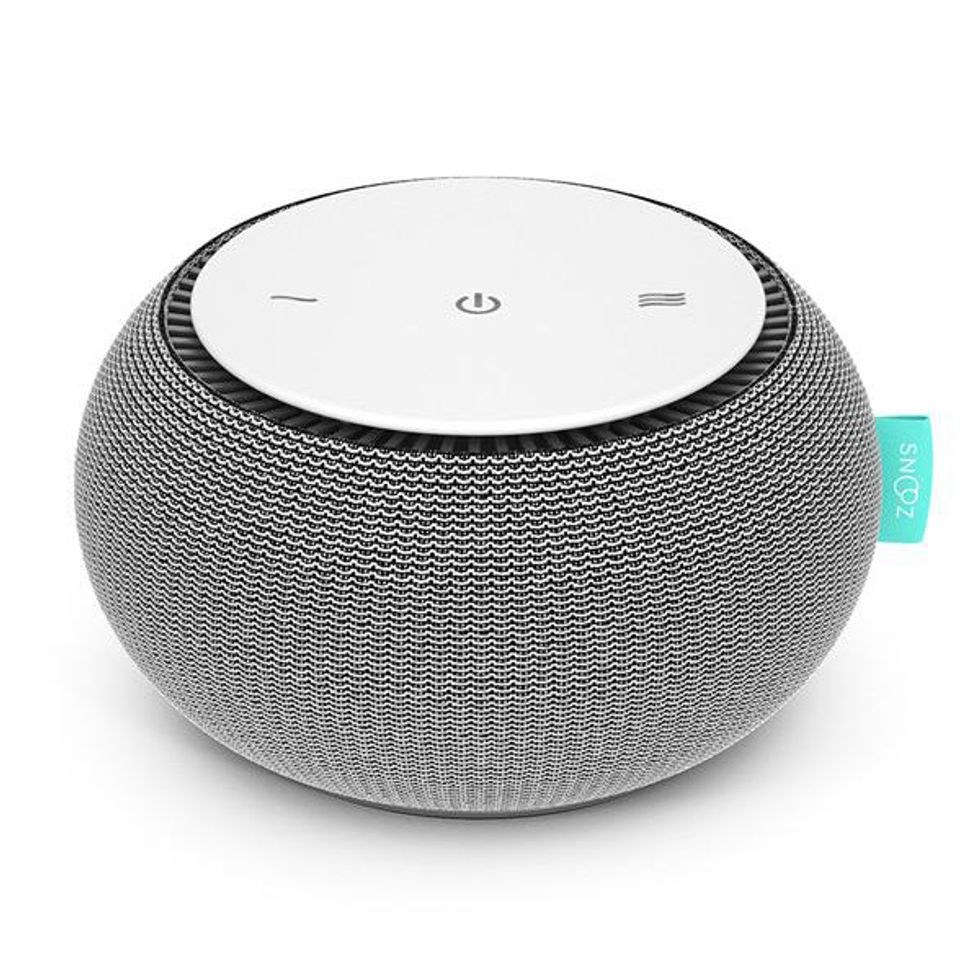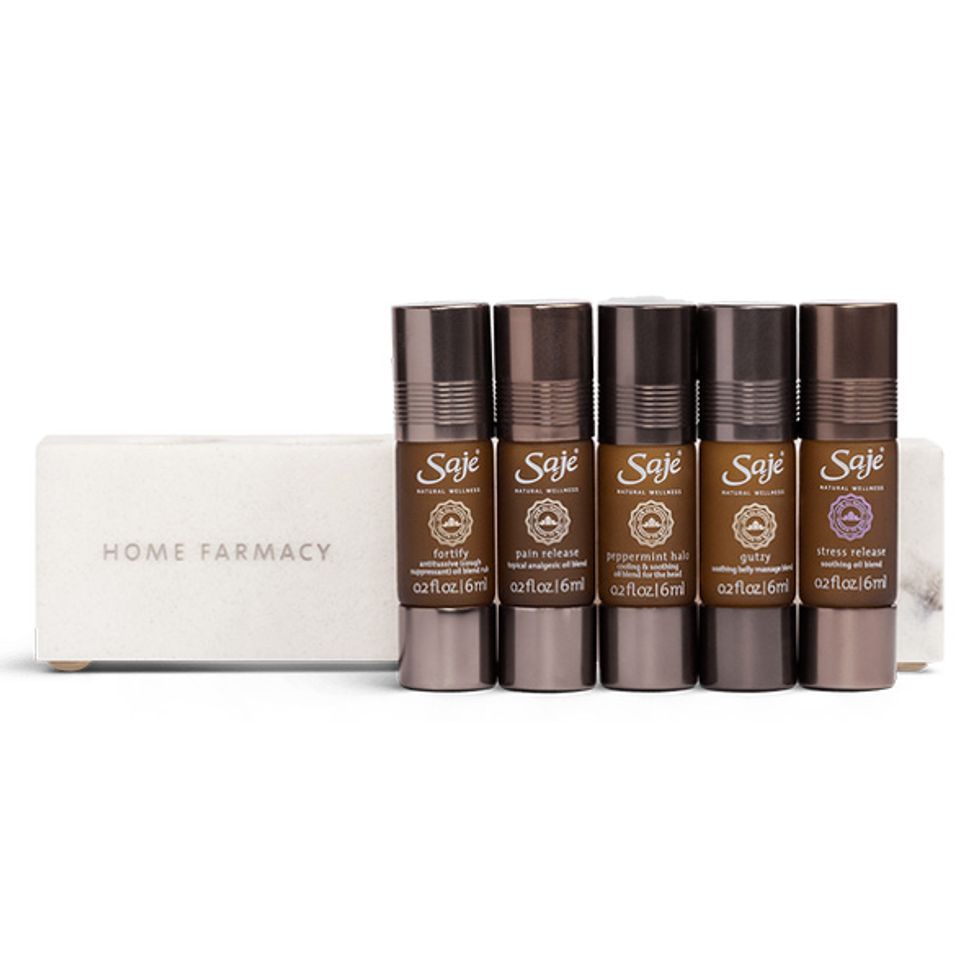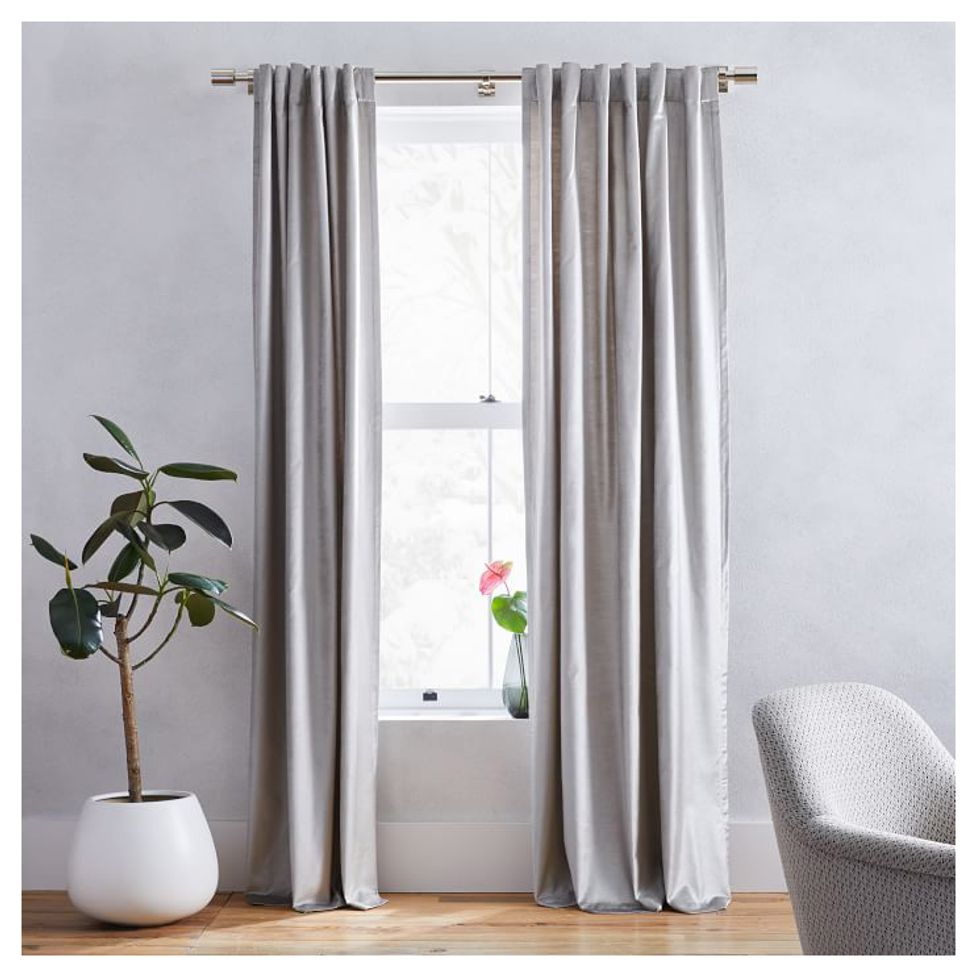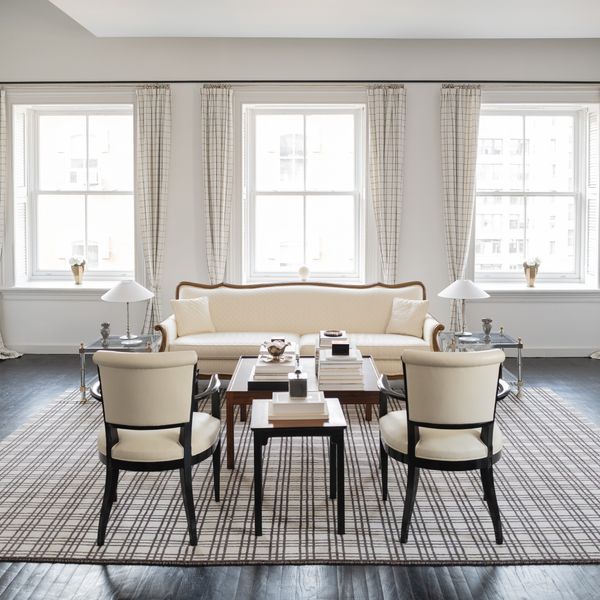Health
How to Get Better, Deeper, Longer Sleep
If sleep is eluding you these days, you’re not alone. An expert weighs in on how to change that.
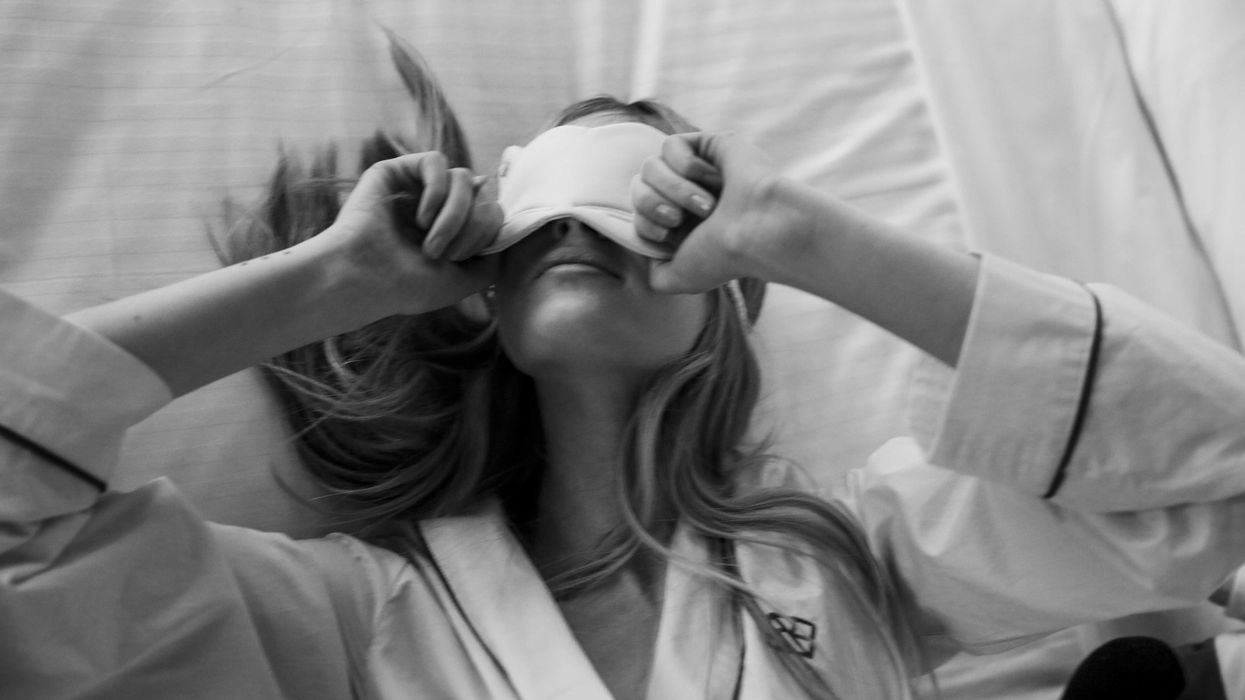
08 April, 2020
10 November, 2021
Sleep. It’s one of the most vital parts of our existence, and yet, for something that might seem so simple (babies are masters of it, after all), it can be difficult for many. Factor in the current global pandemic and all the nerves and anxiety that go along with it, and you have a recipe for fitful, sleepless nights stretching out for weeks on end. Everything from your mood to your skin to your immunity suffers when you aren’t catching enough z’s, yet racing thoughts have a funny way of keeping you up no matter how desperately you need the rest.
Before accepting perpetual sleep deprivation, though, know that it’s 100 percent possible to course-correct your sleep routine, even in this era of extreme stress. Building better habits, adjusting your bedroom, and using technology to your advantage (but not too much) are all a part of the solution and easily available during the age of quarantine and social distancing. We spoke with Dr. Rebecca Robbins, a sleep researcher, member of the Scientific Advisory Board for ASYSTEM, and co-author of Sleep for Success!, to find out why getting good sleep is more difficult than ever, and how to ensure that we get better, longer, and more restful sleep now and in the future.
Before accepting perpetual sleep deprivation, though, know that it’s 100 percent possible to course-correct your sleep routine, even in this era of extreme stress. Building better habits, adjusting your bedroom, and using technology to your advantage (but not too much) are all a part of the solution and easily available during the age of quarantine and social distancing. We spoke with Dr. Rebecca Robbins, a sleep researcher, member of the Scientific Advisory Board for ASYSTEM, and co-author of Sleep for Success!, to find out why getting good sleep is more difficult than ever, and how to ensure that we get better, longer, and more restful sleep now and in the future.
How critical is sleep for staying healthy during this time?
“Immunity and sleep are so tightly linked. Healthy sleep is absolutely critical at this strange time during the pandemic to stay healthy. In experimental studies, if we compare those who get short sleep consistently to those who get healthy sleep, seven hours or more, those healthy sleepers have significantly better immunity and more likelihood of staying healthy despite exposure to rhinovirus or flu. And while those tests haven’t been done with COVID-19 yet, we believe that they are coming.”
How does stress and anxiety affect our sleep?
“There is a very strong and persistent relationship between sleep and mood, and then ultimately, mental health. You become more irritable and anxious, [because] there is more activity in the amygdala, which is the fight-or-flight response center for the brain. Once we are sleep deprived, we have less ability to do what’s called perspective taking, as well. When things happen in our lives, virtually everything has the potential to be a stressor, but, it’s all about how we respond to stressors in our life. When we’re sleep deprived, we’re much more likely to take things out of context, which can spiral into negative thought patterns.
“There’s also a bidirectional relationship between mood and sleep. If you have had a difficult day, you’re more likely to have difficulty going to sleep or maintaining restful sleep at night. But then, in the circumstance that a stressor interferes with your sleep and sleep deprivation sets in, you’re going to wake up and be more at risk for poor moods the next day. That’s why it’s really this recursive relationship between sleep and mental health, that are so intimately related. One great way to curb that downward spiral is to practice good sleep strategies that can set us up for success when it comes to our ability to thrive in our waking lives and keep negative mood[s] at bay.”
What are some examples of helpful sleep strategies?
“First of all, I believe that it is good to acknowledge that sleep difficulties are absolutely normal at this time. We’re also seeing that some people are reporting getting more sleep because they’re exhausted by everything that’s going on and it’s causing their bodies to need a little more than their average sleep duration. Believe it or not, good sleep strategies really start as soon as we wake up. The choices that we make in the morning and throughout the day really culminate with our ability to fall asleep at night.
“For instance, good things to do are to eat healthily and have balanced meals over the course of the day. Maybe have breakfast and lunch be a bit more filling and then dinner being lighter. Also, exercise. People who consistently exercise to the point of sweating every day, or at least four to five times per week, sleep much better than people who don’t do exercise. Alcohol and caffeine are also [of note]. It’s easy in this quarantined environment to change up your routine and develop some bad drinking habits and maybe have a glass of wine or two every night. That wine will help you fall asleep, but when consuming much more than one dose, alcohol does interfere with the quality of your sleep. It’s not going to be restorative rest. Also keep an eye on how much caffeine you’re consuming.
“A bedtime routine is as important as ever. Many of the big new updates are released late at night and close to bedtime. Of course, you want to stay abreast about all of the goings on in the news, but a good strategy is [to] try to avoid the news close to bedtime. It’s stressful, and often, some of the breaking news that might be traumatic to you is not going to help you power down. A bedtime routine is just limiting your exposure to Twitter, the news, other sources of information, and choosing instead activities that are relaxing. Creating a ritual around the bedtime period is good for all of us. Everyone is different, so if you really enjoy aromatherapy, light a candle or take a bath with oils or scents that soothe you, like lavender or sandalwood. Read a book, or try meditation. The ability of the breath to pull us into the moment and away from the worries or the stresses of everything that is going on outside is very helpful.”
“Immunity and sleep are so tightly linked. Healthy sleep is absolutely critical at this strange time during the pandemic to stay healthy. In experimental studies, if we compare those who get short sleep consistently to those who get healthy sleep, seven hours or more, those healthy sleepers have significantly better immunity and more likelihood of staying healthy despite exposure to rhinovirus or flu. And while those tests haven’t been done with COVID-19 yet, we believe that they are coming.”
How does stress and anxiety affect our sleep?
“There is a very strong and persistent relationship between sleep and mood, and then ultimately, mental health. You become more irritable and anxious, [because] there is more activity in the amygdala, which is the fight-or-flight response center for the brain. Once we are sleep deprived, we have less ability to do what’s called perspective taking, as well. When things happen in our lives, virtually everything has the potential to be a stressor, but, it’s all about how we respond to stressors in our life. When we’re sleep deprived, we’re much more likely to take things out of context, which can spiral into negative thought patterns.
“There’s also a bidirectional relationship between mood and sleep. If you have had a difficult day, you’re more likely to have difficulty going to sleep or maintaining restful sleep at night. But then, in the circumstance that a stressor interferes with your sleep and sleep deprivation sets in, you’re going to wake up and be more at risk for poor moods the next day. That’s why it’s really this recursive relationship between sleep and mental health, that are so intimately related. One great way to curb that downward spiral is to practice good sleep strategies that can set us up for success when it comes to our ability to thrive in our waking lives and keep negative mood[s] at bay.”
What are some examples of helpful sleep strategies?
“First of all, I believe that it is good to acknowledge that sleep difficulties are absolutely normal at this time. We’re also seeing that some people are reporting getting more sleep because they’re exhausted by everything that’s going on and it’s causing their bodies to need a little more than their average sleep duration. Believe it or not, good sleep strategies really start as soon as we wake up. The choices that we make in the morning and throughout the day really culminate with our ability to fall asleep at night.
“For instance, good things to do are to eat healthily and have balanced meals over the course of the day. Maybe have breakfast and lunch be a bit more filling and then dinner being lighter. Also, exercise. People who consistently exercise to the point of sweating every day, or at least four to five times per week, sleep much better than people who don’t do exercise. Alcohol and caffeine are also [of note]. It’s easy in this quarantined environment to change up your routine and develop some bad drinking habits and maybe have a glass of wine or two every night. That wine will help you fall asleep, but when consuming much more than one dose, alcohol does interfere with the quality of your sleep. It’s not going to be restorative rest. Also keep an eye on how much caffeine you’re consuming.
“A bedtime routine is as important as ever. Many of the big new updates are released late at night and close to bedtime. Of course, you want to stay abreast about all of the goings on in the news, but a good strategy is [to] try to avoid the news close to bedtime. It’s stressful, and often, some of the breaking news that might be traumatic to you is not going to help you power down. A bedtime routine is just limiting your exposure to Twitter, the news, other sources of information, and choosing instead activities that are relaxing. Creating a ritual around the bedtime period is good for all of us. Everyone is different, so if you really enjoy aromatherapy, light a candle or take a bath with oils or scents that soothe you, like lavender or sandalwood. Read a book, or try meditation. The ability of the breath to pull us into the moment and away from the worries or the stresses of everything that is going on outside is very helpful.”
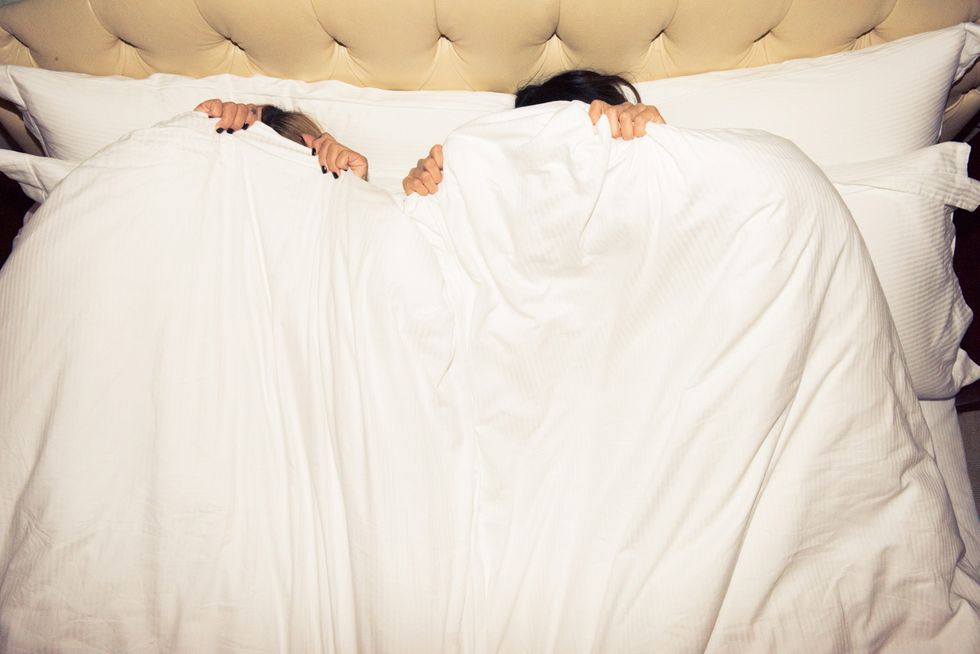
What is restorative sleep, and how does it help you feel more rested?
“Sometimes people will say I’m in bed for seven hours; I’m not sleeping the whole time, but at least I’m in bed. That would be the same thing as going to the gym and standing on a treadmill and saying I’m here, I’ve made it to the gym, I’ve done my work. There’s a big difference between just showing up and really getting the most out of it. Good sleep, again, really starts as soon as we wake up. You can get restorative sleep by practicing all of the strategies that we discussed. A really good strategy, also, if you do find yourself tossing and turning: Get up, take a few strides, and simply get back into bed when you’re tired. It really is a myth that some sleep is better than none, or that if you just lie in bed, somehow you’ll be able to get some sleep. Instead, getting up helps the brain reset, so that you can go back to sleep and get better-quality sleep.”
What are your thoughts on people who are using their bed as a part of their at-home work space?
“That’s happening a lot right now. I lived in New York for many years, in a studio, and I would find myself laughing because in sleep medicine we’re often like, Leave the bedroom, enjoy another room of the house. But in New York and L.A. and these bigger cities, there is such limited space. No matter what living arrangement you have, do your very best to retain and reserve your bed for sleep. That will help your brain condition itself to be tired and to sleep when you slip into the covers. Of course, you want to match that with a consistent bedtime routine.
“If you start to do things other than sleep in bed, like for instance, now, with much less structure in the day, your alarm clock might go off and then you’re more inclined to hit the snooze bar, then reach for your laptop and maybe do some work in bed. Maybe you have a video call, so you’ll move to another room or another armchair or furniture to go back to bed and watch a movie. But unfortunately, you’re starting to condition yourself to believe that lots of things happen in bed, not just sleep. So you’re going to struggle to get good sleep when you get into bed at night.”
What do you recommend for making your sleeping area more conducive to getting restful sleep?
“Too often, there is not a lot of thought that goes into the bedroom. Maybe you pick nice colors that you like in your waking life, but you really want it to be subdued and designed with neutral tones. You want to walk in and it feels like a spa—just feel relaxed instantly, ideally. Try to get all of the sources of light out of your bedroom environment, even the sneaky sources, like little cell phone chargers, or a bright alarm clock. That will cause you to get stressed if you should wake up in the middle of the night.
“Try to find the thickest curtains you can find, the reason being so that when the sun sets, you are able to go into that bedroom and the absence of light is what triggers our brain to become tired. Quiet is really key. The sound of a soft conversation is actually enough to wake you up from most stages of sleep. So if there is noise in your environment that disrupts your sleep, look into buying some earplugs or maybe a white-noise machine. Or a trick is that you can just take a clock radio and put it in between two settings to have some buzz in the background.”
“Sometimes people will say I’m in bed for seven hours; I’m not sleeping the whole time, but at least I’m in bed. That would be the same thing as going to the gym and standing on a treadmill and saying I’m here, I’ve made it to the gym, I’ve done my work. There’s a big difference between just showing up and really getting the most out of it. Good sleep, again, really starts as soon as we wake up. You can get restorative sleep by practicing all of the strategies that we discussed. A really good strategy, also, if you do find yourself tossing and turning: Get up, take a few strides, and simply get back into bed when you’re tired. It really is a myth that some sleep is better than none, or that if you just lie in bed, somehow you’ll be able to get some sleep. Instead, getting up helps the brain reset, so that you can go back to sleep and get better-quality sleep.”
What are your thoughts on people who are using their bed as a part of their at-home work space?
“That’s happening a lot right now. I lived in New York for many years, in a studio, and I would find myself laughing because in sleep medicine we’re often like, Leave the bedroom, enjoy another room of the house. But in New York and L.A. and these bigger cities, there is such limited space. No matter what living arrangement you have, do your very best to retain and reserve your bed for sleep. That will help your brain condition itself to be tired and to sleep when you slip into the covers. Of course, you want to match that with a consistent bedtime routine.
“If you start to do things other than sleep in bed, like for instance, now, with much less structure in the day, your alarm clock might go off and then you’re more inclined to hit the snooze bar, then reach for your laptop and maybe do some work in bed. Maybe you have a video call, so you’ll move to another room or another armchair or furniture to go back to bed and watch a movie. But unfortunately, you’re starting to condition yourself to believe that lots of things happen in bed, not just sleep. So you’re going to struggle to get good sleep when you get into bed at night.”
What do you recommend for making your sleeping area more conducive to getting restful sleep?
“Too often, there is not a lot of thought that goes into the bedroom. Maybe you pick nice colors that you like in your waking life, but you really want it to be subdued and designed with neutral tones. You want to walk in and it feels like a spa—just feel relaxed instantly, ideally. Try to get all of the sources of light out of your bedroom environment, even the sneaky sources, like little cell phone chargers, or a bright alarm clock. That will cause you to get stressed if you should wake up in the middle of the night.
“Try to find the thickest curtains you can find, the reason being so that when the sun sets, you are able to go into that bedroom and the absence of light is what triggers our brain to become tired. Quiet is really key. The sound of a soft conversation is actually enough to wake you up from most stages of sleep. So if there is noise in your environment that disrupts your sleep, look into buying some earplugs or maybe a white-noise machine. Or a trick is that you can just take a clock radio and put it in between two settings to have some buzz in the background.”

What about all our increased screen time these days—how is that hurting our sleep?
“We’re all guilty of this, using our screens, our mobile phones, et cetera, too much, but a really good goal would be 30 minutes before bedtime, you’re unplugging your mobile phone or turning it to airplane mode, and then you start your routine, whether it’s a soothing bath, relaxing activities, maybe a self-massage with some night creams that smell aromatic. One of the things with routines is if you really follow them, your body starts to understand what comes next. You’re also more likely to remember to do these things if it’s a sequence of events; then it can just be automatic.
“Exposure to blue light is the kick start to the awake phase, and the absence of light, or darkness, is what kick-starts the sleeping phase of the circadian system. It’s like a well-oiled machine; we want to keep that very much in tune. Falling asleep at the same time and waking up at the same time, making time for exercise, keeping the timing of your meals about the same, all of those things are all pointing back to the circadian rhythm. By keeping the rhythm consistent, you’re fueling that machine to then operate consistently, and be sleepy the next night.”
Do you believe in using any sort of supplements or sleep aids, whether it’s CBD, melatonin, et cetera?
“We don’t really have a lot of data yet on CBD and sleep. It’s a relatively new substance, but anecdotally, I know a lot of people are using it for sleep. In terms of the melatonin, a little goes a very long way. Unfortunately, in America, we think, the more, the better. But just about 0.5 mg is all that’s recommended if you do feel the need to take a sleep aid of that kind. What we really want to do is move everyone away from dependency on those types of substances. Instead of having melatonin every night, you really want to use it to get through a difficult situation, like that in which we find ourselves. Healthy routines really are the best long-term solution.”
So, is there such a thing as too much sleep?
“Duration is important, but consistency is maybe even more important. And we’re all a little bit different; adults generally need between seven and eight hours. It’s partly genetic and partly engrained over time, so there’s a bit of difference across that spectrum. But by and large, really keeping it consistent is absolutely critical.”
“We’re all guilty of this, using our screens, our mobile phones, et cetera, too much, but a really good goal would be 30 minutes before bedtime, you’re unplugging your mobile phone or turning it to airplane mode, and then you start your routine, whether it’s a soothing bath, relaxing activities, maybe a self-massage with some night creams that smell aromatic. One of the things with routines is if you really follow them, your body starts to understand what comes next. You’re also more likely to remember to do these things if it’s a sequence of events; then it can just be automatic.
“Exposure to blue light is the kick start to the awake phase, and the absence of light, or darkness, is what kick-starts the sleeping phase of the circadian system. It’s like a well-oiled machine; we want to keep that very much in tune. Falling asleep at the same time and waking up at the same time, making time for exercise, keeping the timing of your meals about the same, all of those things are all pointing back to the circadian rhythm. By keeping the rhythm consistent, you’re fueling that machine to then operate consistently, and be sleepy the next night.”
Do you believe in using any sort of supplements or sleep aids, whether it’s CBD, melatonin, et cetera?
“We don’t really have a lot of data yet on CBD and sleep. It’s a relatively new substance, but anecdotally, I know a lot of people are using it for sleep. In terms of the melatonin, a little goes a very long way. Unfortunately, in America, we think, the more, the better. But just about 0.5 mg is all that’s recommended if you do feel the need to take a sleep aid of that kind. What we really want to do is move everyone away from dependency on those types of substances. Instead of having melatonin every night, you really want to use it to get through a difficult situation, like that in which we find ourselves. Healthy routines really are the best long-term solution.”
So, is there such a thing as too much sleep?
“Duration is important, but consistency is maybe even more important. And we’re all a little bit different; adults generally need between seven and eight hours. It’s partly genetic and partly engrained over time, so there’s a bit of difference across that spectrum. But by and large, really keeping it consistent is absolutely critical.”

